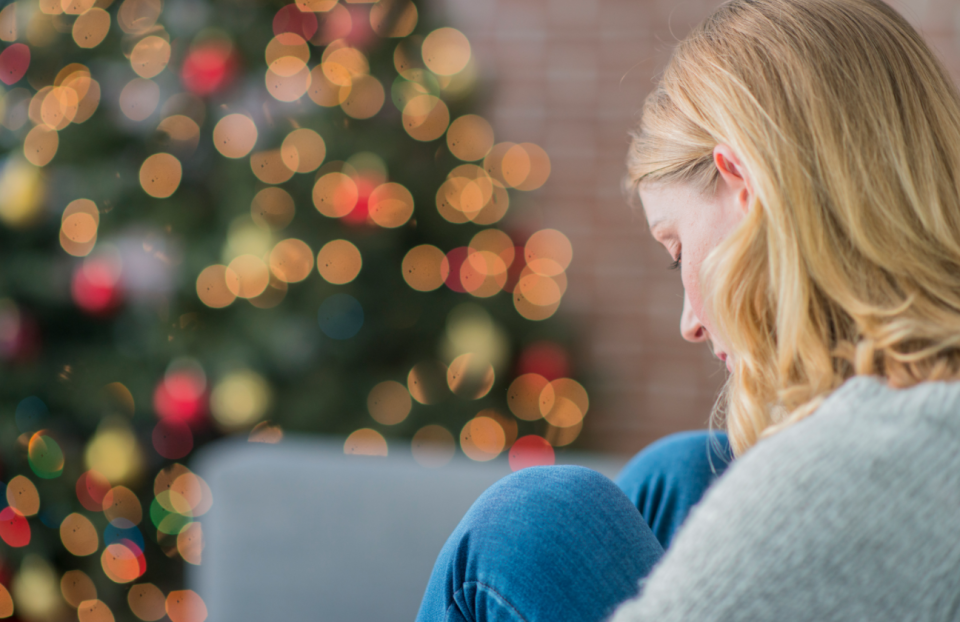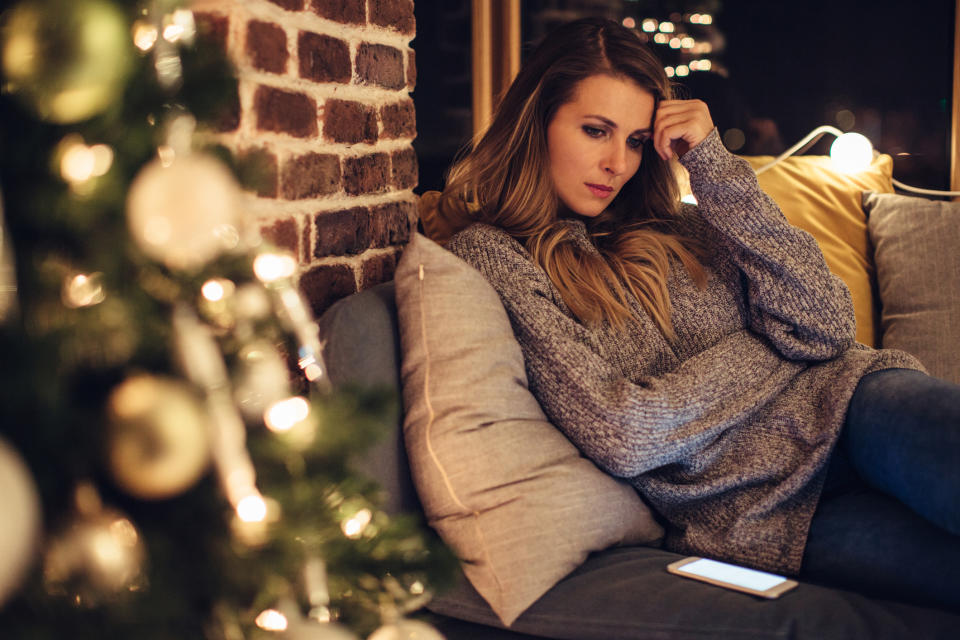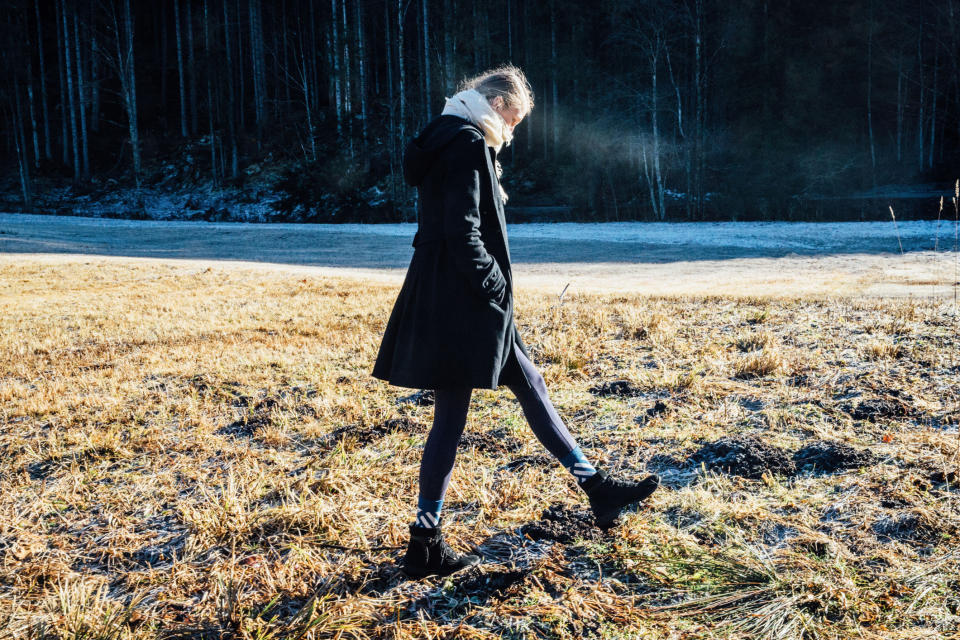COVID-19 and the holidays: How to help feelings of loneliness and stress this holiday season
Looking for more news on health and wellness? Sign up for Yahoo Lifestyle Canada’s newsletter!

For Christine Hagemoen, Christmas usually means three days of celebrations with different parts of her family. But this year, she doesn’t foresee having their usual gatherings because there are some family members considered high risk for COVID-19.
“This is going to be the first year where we are barely going to be doing anything, and that will be a challenge. We will take on the creative challenges of trying to somehow get time together, even for a visit on a sunny day in December on the back porch. But not doing it as a large group,” the Vancouver resident tells Yahoo Lifestyle Canada.
ALSO SEE: Is depression contagious? What you need to know
Hagemoen says it may help to have a little flexibility and have smaller gatherings throughout December instead of trying to pack everything into two or three days. To make sure the season remains festive, she also plans to keep up the tradition of making some of her favourite holiday meals and treats, just in smaller batches.

Like Hagemoen, many Canadians will have to get creative this year when planning for the holiday season and staying active and connected throughout the winter. Many people may feel stressed, sad or isolated by not being able to gather with loved ones and continue certain traditions.
The holiday season is uniquely stressful because the pinnacle of a lot of holidays is the increased social contact and the connections we have with our loved ones, says Catherine Cloutier, a registered clinical counsellor at the Sandstone Counselling Centre in Kamloops, B.C.
ALSO SEE: How my journey as a germaphobe prepared me for the 'new normal' of life during a pandemic
“We have the opportunity to make space and make time to honour these connections. In daily living, we don’t always have time for this, as we are running around getting things done. The holidays offer us this ritualized opportunity for connection. So how can we do this amidst the COVID-19 response? How can we do this safely?” she says. “Some things will even be impossible, depending on regulations in each province. It’s about adapting to change and accepting what we cannot change.”

Instead of rushing to find solutions, Cloutier recommends noticing what we are feeling and recognizing our emotional responses, such as joy, shame, surprise, anger, fear or sadness. She suggests exploring these emotions and sharing how you are feeling with a trusted friend or taking time by yourself to reflect. If you feel you need more help, she recommends reaching out to a mental health professional.
“For example, you may feel shame around the financial impact of COVID-19 and having to do Christmas differently because you can’t buy what you used to buy,” she explainis. Cloutier adds that if you can identify with your feelings, you can heal from them and be in a better position to be creative about how to meet your need for connection, despite the external barriers.
ALSO SEE: How to prepare for seasonal affective disorder during the pandemic
According to Cloutier, regular cardiovascular exercise can help alleviate feelings of anxiety, sadness and stress and suggests people also set aside time for activities they find relaxing.
“Do an activity that holds your attention for a sustained period of time and doesn’t let you think about your worries,” she says, suggesting an activity like a jigsaw or crossword puzzle, a craft, knitting or a mini meditation.

If you live alone, Cloutier recommends connecting with friends and family by phone or video call and not just through text or email. Finding online groups associated with your interests, such as a book club or virtual painting class, as well as spending time outside can also be beneficial to improving your mental health. As Cloutier explains, when natural light hits your retina, it can help ease sadness and improve energy levels.
And while we will have to accept seeing loved ones over video chat during the winter, it’s important to realize how fortunate we are to have the tools to be able to connect virtually, says Dr. Ami Rokach, a clinical psychologist who also teaches at York University in Toronto.
ALSO SEE: 'It's not like you can tell yourself to stop': What it's like living with binge eating disorder
“Remind yourself that it's a temporary situation. It’s not life. It’s just the way life is right now. We can also start to think about what we learn from this period, about ourselves and other people,” he says. “Another thing that I would encourage people to do is take social risks.”

Rokach suggests taking the first step towards connecting with friends or even with new people. “Instead of saying, I am alone for the holidays or the winter, I could say everyone is in the same situation and make the first step to get together with people,” he adds.
Hagemoen, who lives alone and works from home, plans to make sure she gets outside often during the winter, even when it’s dark and cold.
“Even just challenging myself to leave my safe haven,” she says. “I am also quite motivated to do some projects, so I have some projects planned over the winter. I think that it’s important for people to try and have little projects, even if it's just exploring your neighbourhood. You have to rethink and try and motivate yourself in different ways.”
Let us know what you think by commenting below and tweeting @YahooStyleCA! Follow us on Twitter and Instagram and sign up for our newsletter.


